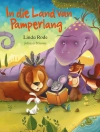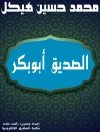In ‘Europa’s Fairy Book, ‘ Joseph Jacobs presents a rich tapestry of European folk tales, intertwining elements from various cultures to create a modern compendium of fairy tales that captures the essence of the continent’s storytelling traditions. Beautifully written in a narrative style that balances oral tradition with literary refinement, Jacobs elevates common folk narratives while preserving their intrinsic charm. This collection not only recounts enchanting stories but also provides context on their origins, showcasing their moral underpinnings, cultural significance, and the transitional nature of folklore from oral to written form in a rapidly modernizing world. Joseph Jacobs, an influential figure in the late 19th century, was a dedicated folklorist and scholar who sought to preserve the enchanting word of fairy tales that had been orally transmitted for generations. His commitment to the authentic representation of folk tales reflects his upbringing in a culturally rich environment, where stories from various backgrounds shaped his understanding of narrative. Jacobs believed in the power of these tales to offer moral lessons and entertain, guiding his meticulous curation of ‘Europa’s Fairy Book.’ ‘Europa’s Fairy Book’ is a compelling read for anyone interested in folklore, literature, or cultural studies, as it offers readers a vivid glimpse into the heart of European fairy tales. Jacobs’ deft storytelling not only delights with whimsical plots but also serves as a lens through which to explore the socio-cultural landscapes of Europe. This collection is a must-read for scholars and casual readers alike who wish to engage with the complexities and wonders of fairy tales.
About the author
Joseph Jacobs (1854-1916) was an Australian-born folklorist, critic, and writer, best known for his work as a collector and publisher of English folklore. His scholarly endeavors extended beyond merely gathering tales; Jacobs was intent on tracing their origins, evolution, and cross-cultural variations. He made a significant contribution to the field with publications such as ‘Europa’s Fairy Book’ (also known as ‘European Folk and Fairy Tales’), which exemplifies his commitment to preserving and disseminating the fairy tales of Europe to a broader audience. Jacobs’ literary style in his collections is noted for its engaging prose, which captures the immediacy and vibrancy of the oral tradition while making the tales accessible to children and adults alike. Beyond his work as a folklorist, Jacobs produced a range of critical works and studies on literary subjects, imbuing his writing with academic rigor and a keen analytical eye. His scholarly approach and narrative flair combined to ensure that the tales he collected, retold, and contextualized would enchant readers for generations, cementing his legacy as a pivotal figure in the folklore preservation movement of the late 19th and early 20th centuries.












